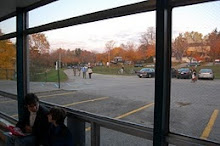- 67% - Worried about paying for their housing
- 20% - Owe more on their house than it's worth
- 40% - Will have trouble paying for their kids' eduction
- 33% - High gasoline prices ($200/mo per car roughly on average) are causing problems
The next most shocking statistic is about fuel prices. If the average car is driven 1000 miles/mo and gets 20 miles/gallon, that's 50 gallons/mo. At $4/gallon, that's $200/mo. $200/mo can make or break someone's financial world? If a family with two cars received $400 more per month, i.e. free gasoline, it would change their financial circumstances? Maybe this refers to people who use their cars way more than average for business or a special circumstance. I wish the NYT probed further.
I also wish they had probed why 40% of Americans have had to alter expectations for the type of college they can afford for their children. What changed between their old expectations and today's? The stock market has recovered from the crisis three years ago. Contributions to a typical college fund made during the crisis have nearly doubled.
I am not trying to make light of the suffering behind these numbers. They point to a problem bigger than what all the branches of all levels of government combined could do.

